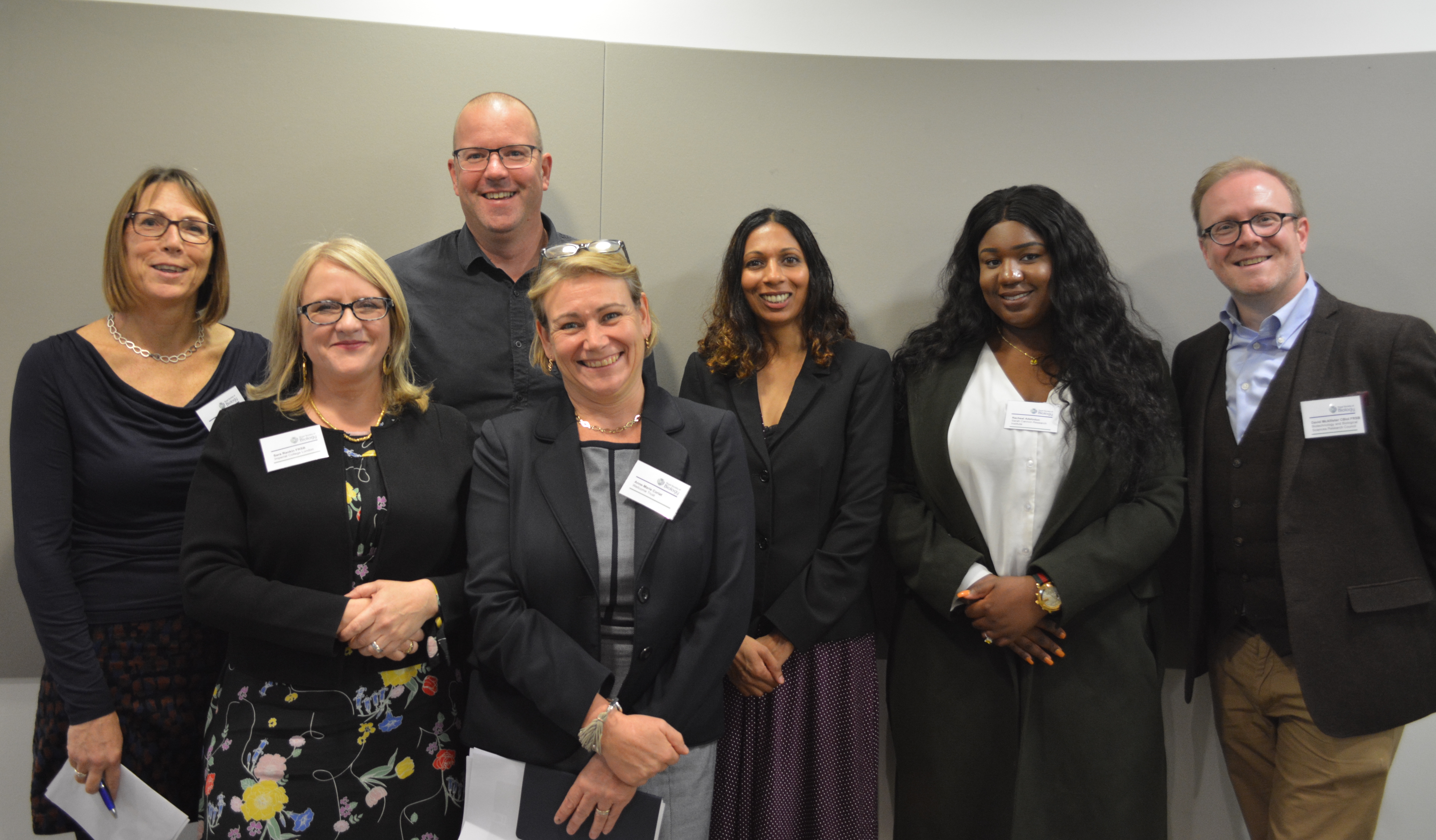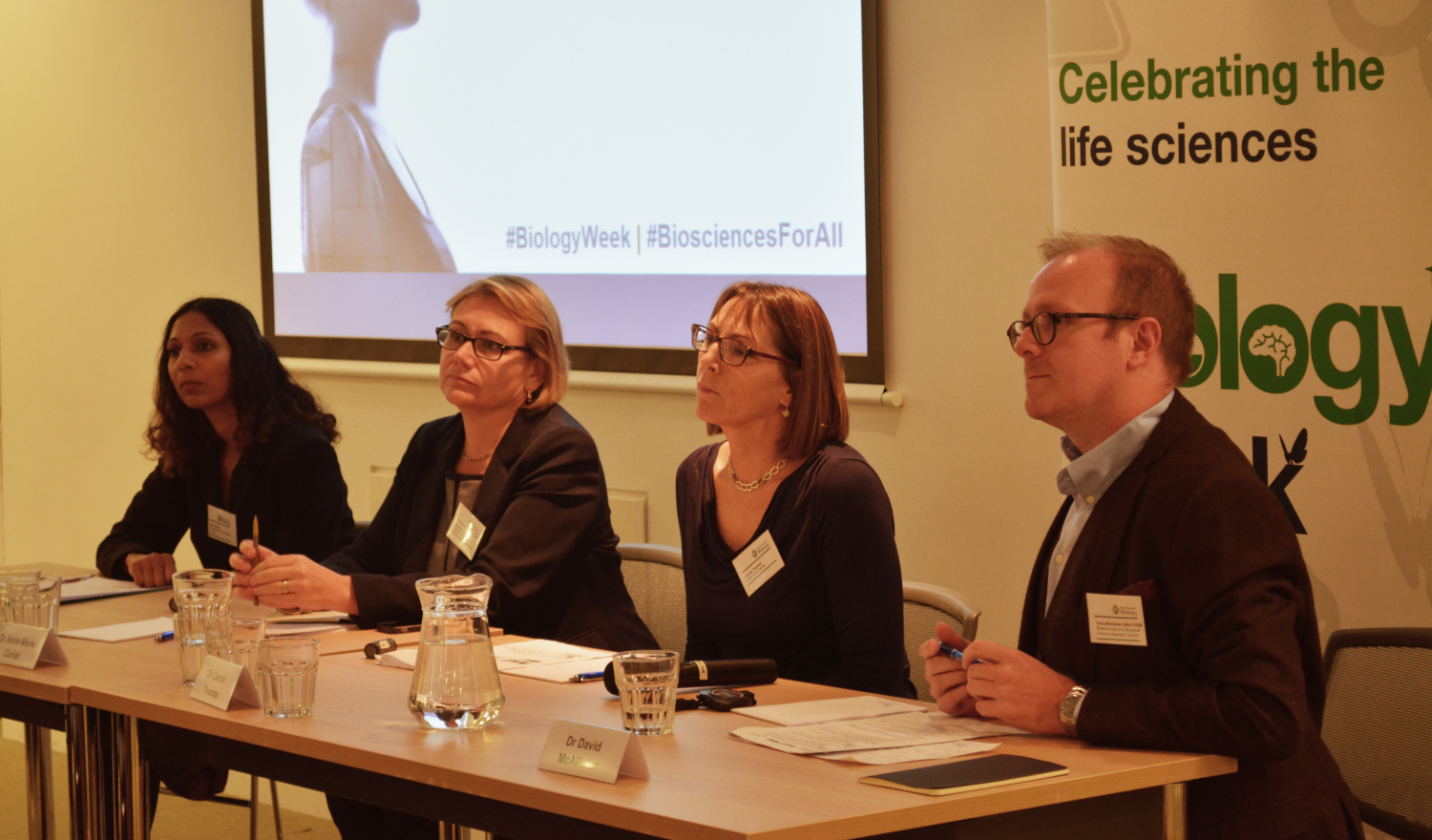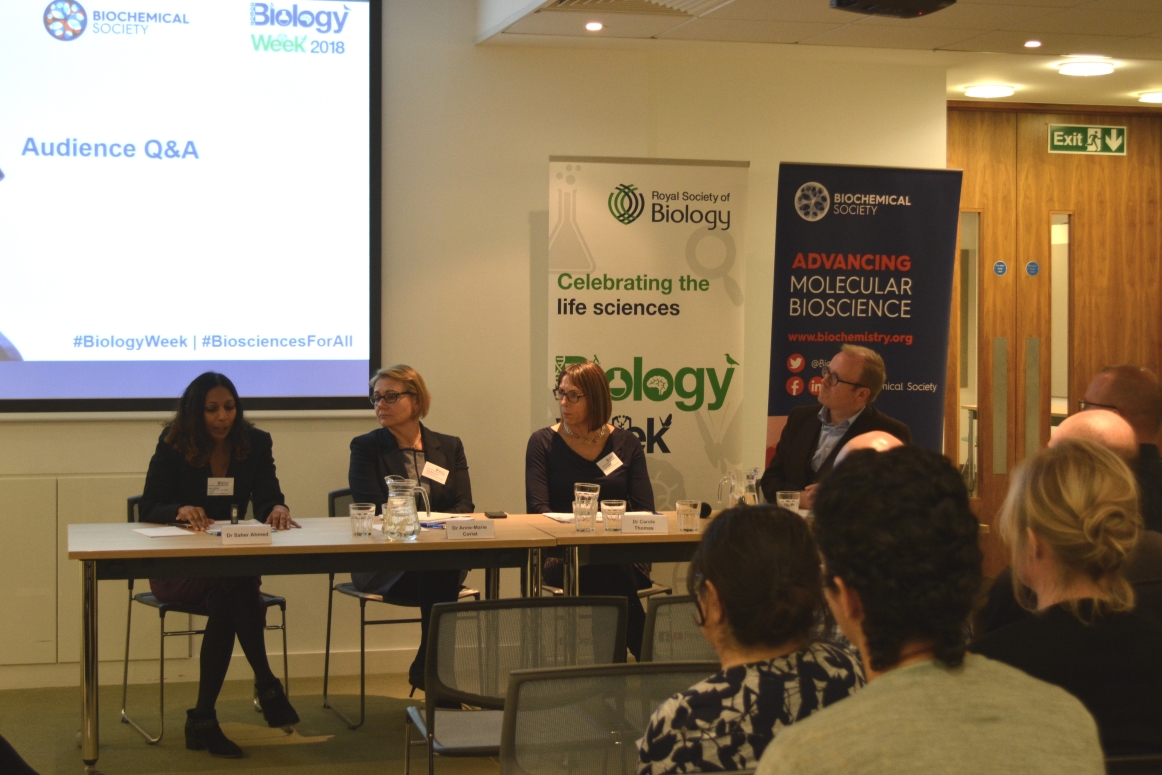News archive
Biology Week 2018: Bioscientists discuss inclusion and diversity at Policy Lates
- Details
- 09 October 2018
The RSB’s Policy Lates series returned for this year’s Biology Week, with an event entitled #BiosciencesforAll – Paving Pathways for Diversity.
A panel of bioscientists and sector leaders came together to discuss the ways they are improving accessibility and the opportunities they have created for people from a range of communities and experiences.
The event, held as part of Biology Week 2018, and ran with the support of the Biochemical Society, saw panelists discuss how they and their institutions are seeking to provide opportunities to create an inclusive and accessible environment within the biosciences.

FLTR: Dr Carole Thomas, Professor Sarah Rankin FRSB, Anthony Wynne, Dr Anne-Marie Coriat, Dr Saher Ahmed, Racheal Adelodun, and Dr David McAllister CBiol FRSB
The event was opened by Dr Laura Marshall MRCVS, policy manager at the RSB: “Part of our mission at the RSB is to be the unifying voice for biology.
“This event formed part of our #Biosciencesforall initiative which, as part of our mission, brings together our activities to support voices from diverse backgrounds to be heard and represented.”
The event was chaired by Dr David McAllister CBiol FRSB, associate director of research and innovation talent (UKRI) at the Biotechnology and Biological Sciences Research Council (BBSRC). McAllister also leads the BBSRC’s equality, diversity and inclusion policy development within UKRI.
Racheal Adelodun, clinical trial coordinator at the Sarah Cannon Institute, began the discussion by describing her experience of being the first in her immediate family to attend university.
Adelodun recounted the benefits of attending University College London’s in2science placements and thanked the scheme for providing her with information and skills which she would have struggled to access otherwise.

Speakers were split between two panels, both chaired by Dr McAllister
The second speaker on panel one was Professor Sara Rankin FRSB, professor of leukocyte and stem cell biology and the lead for outreach and public engagement at the National Heart and Lung Institute at Imperial College London.
Professor Rankin described her experience of being an undiagnosed dyslexic at school as one of “humiliation and frustration”. She discussed how traits such as creativity and collaboration enable people with learning difficulties like dyslexia to be successful scientists.
Professor Rankin then outlined the stark attainment gap for pupils with Special Educational Needs (SEN) in STEM, and described how her most recent project, 2eMPower, can provide support for these students.
Anthony Wynne, research fellow in the mitochondrial biology lab at the University of Plymouth discussed his experiences as a Daphne Jackson Trust Fellow, and their support in helping him return to work after an 11 year career break.
Wynne explained how employers can often see STEM professionals that have had a career break as “out of touch”, but how the Daphne Jackson Trust offers a personally tailored approach to overcome this, and enable Fellows for a successful return to work.

Panel two takes questions from the audience
The floor was then opened to the audience to question the first panel of speakers, which led to discussions on what universities can do to encourage a diverse student population, and the potential limitations of traditional examinations in schools in fostering success in pupils of certain backgrounds.
The second half of the evening began with Dr Saher Ahmed, Head of Equality, Diversity and Inclusion at the Wellcome Sanger Institute. Ahmed explained the practical initiatives that the Wellcome Sanger Institute have put in place to support an inclusive workforce, with a focus on the importance of policies aimed at supporting parents and carers.
Dr Anne-Marie Coriat, head of UK and Europe research landscape at the Wellcome Trust, discussed how the Trust has made it a priority to speed up progress in our understanding of the types of initiatives that work best to enable an accessible and inclusive research culture, and to drive evidence-based change.
Dr Carole Thomas, Senior Equality and Diversity Champion and Chair of the John Innes Centre inclusivity and diversity committee, shared the diversity and inclusion policies and initiatives that earned the JIC a Gold Athena SWAN award. Thomas then gave an overview of the Centre’s work as a recent signatory to the Technician Commitment.
The audience was again given the opportunity to question the panel, which led to a conversation about demographics that require more representation in bioscience organisations, such as those that identify as part of the LGBTQ+ community, and how this can be encouraged. The panel also discussed how the culture of an organisation can impact the decisions of those looking to study or work there.
The speaker’s talks were recorded by the Biochemical Society, and is available to watch on their YouTube channel.

